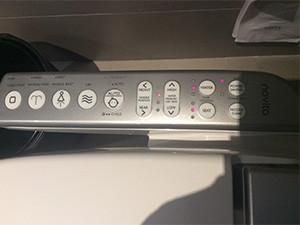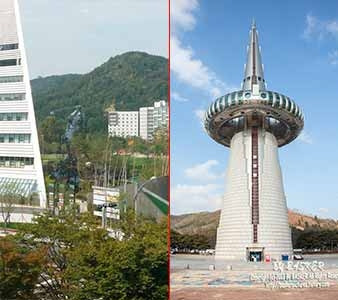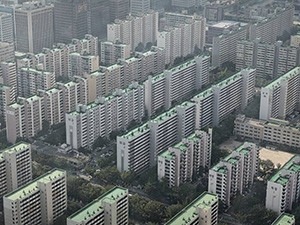
The Republic of Korea ("South Korea") is a very digital country, from the little I saw of it during my brief visit for the World Computer Congress and the General Assembly of the International Federation for Information Processing at the beginning of October.
It's also a very clean country with no litter to be seen anywhere, in spite of the scarcity of litter bins! The epitome of both characteristics was to be found in the hotel bathroom, where the e-controls for the toilet were baffling to someone who has not achieved a B.Tech.
What was digitally impressive: signage at Incheon Airport and on the Korail system stations, in three languages; renting a portable WiFi hotspot for the duration of your stay; excellent free WiFi in the hotel; and WiFi on the high-speed KTX train (at 299kmph).
Digitally not so impressive: slow/no WiFi in the Daejeon Convention Centre; almost no non-Korean/Chinese language channels on the hotel TV; and being redirect to .kr Web sites with no other language available.

Korean food - interesting. A "traditional" meal involves many courses and side dishes (I counted 14 courses and six side dishes) many of which are served cold. Although one gets the impression of "heavy on the garlic and chillies", the lasting impression is that much of the food is very bland, interspersed with some dishes that will clear your sinuses in seconds (anything bright yellow is likely to have this effect) - useful to have the rice wine or Ice lager handy. "Kimchi" is the national staple dish, mainly of vegetables with a range of seasonings and flavours - there are over 180 varieties!
South Korea is home to more than 50 million people in a country bounded by the sea on three sides and the People's Republic of Korea to the north ? a land mass that is less than one-twelfth the size of South Africa. About one-fifth of the population lives in or around Seoul - one of the largest cities in the world. With so many people and so little space, it is understandable that city dwellers are apartment dwellers - there are forests of them, from 15 to 50 storeys high, displaying an alarming degree of sameness for those travellers more used to the varied designs and colours found in other cities around the world.
It is ahead of every other country when it comes to broadband Internet.
Daejeon is much smaller (about the size of Port Elizabeth) than Seoul and is a transport hub in the centre of the country - less than an hour from Seoul on the KTX express, which also links to Incheon where the main airport is (about 50km west of Seoul) and to Busan on the southern coast. Daejeon was the host of the 1993 Expo and the convention centre is located in the Expo Science Park, where the Tower of Great Light and a giant stainless steel statue of a golfer still dominate the view.

South Korea has faced many political challenges and been through several "styles" of government in the last 50 years but a strong focus on developing the economy and riding the industrial wave has ensured the country plays a major role in the global economy, moving from one of the poorest to one of the wealthiest nations.
It is ahead of every other country when it comes to broadband Internet and it has ranked first worldwide in the UN's ICT Development Index since it launched - thanks to the government policies that enabled a rapid rollout of broadband and encouraged its use.
A lesson for South Africa?
Share